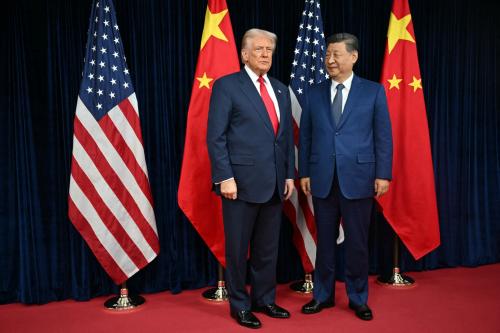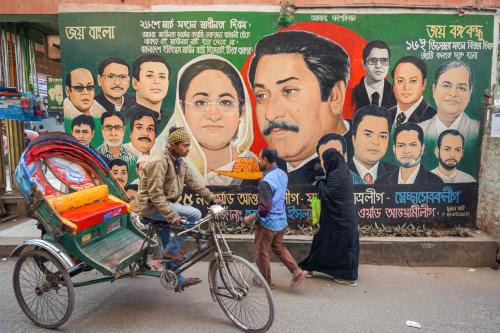On the evening of Oct. 2, 1990, I drove to Koblenz to celebrate German unification, which occurred one minute after midnight.
I was spending the academic year in Germany to research unification, and that midnight celebration was the emotional high point of my stay. In the early 1990s, many others and myself included were writing articles about how the political “winds of change” might blow on to reach the Korean peninsula. Alas, nothing changed, and here we are, two decades later, with the two Koreas still separated and no prospect for unification in sight.
I am reminded of that happy time in Germany by the recent popular uprising in Egypt. Even after 30 years of ruling the country President Hosni Mubarak is not the dictator that Kim Jong-il is, but still, no one predicted that the Egyptian people would have the power to contest his rule. Nor, for that matter, was German unification foreseen. We must not, however, confuse the unpredictable with the improbable or the impossible.
Vaclav Havel, the first president of post-revolution Czechoslovakia, spoke of the “power of the powerless.” This kind of power is notoriously difficult to measure. It is not something countable like money or guns or people. One day it can be almost invisible and the next day it is being exercised by thousands of people in the streets. In this sense, it is more potent than the power that powerful people wield because their power is often out in the open for everyone to see.
Revolutions, whether peaceful or violent, successful or unsuccessful, occur for many reasons. Most of the time, they are sparked by an unpredictable event; for example, the death of a dictator, a natural disaster, or revolution in a neighboring country. But for the people to rise up, the spark of revolution must have some fuel to burn.
At the very least, mass discontent is required to spread the flames, and for the revolution to be successful, usually an organized opposition. These facilitating factors are often not easily observed; after all, dictators try to control information about their countries in order to keep both citizens and foreigners ignorant. But after a revolution has occurred, we can look back and identify these factors, and with hindsight we can see that revolution was to some degree probable, even if it was unpredictable.
If we take a very long view, it is safe to say that no matter how seemingly docile and powerless people are, they will ultimately find an opportunity to seek political and economic freedom. As the saying goes ― in English as well as in Korean ― “Even the smallest worm will turn on you if it is stepped on.” That is why we can be confident that someday the Kim regime of North Korea will fall, even though we cannot say when that day will come.
There may be little we can do to precipitate an event that brings down a regime, but there is much that can be done to prepare for it. To employ a different metaphor, the underlying currents of change are often well hidden, and their magnitude and velocity may not be remarkable. But they are nonetheless eroding the foundation under dictatorships, little by little.
In North Korea, revolutionary influences are already emerging. Like the Egyptian people, most North Koreans are poor and dissatisfied with their economic and political situation. Also like the Egyptians, they are gaining knowledge about their rulers and about the outside world through new communication technology. By a strange coincidence, it is an Egyptian company that is building North Korea’s cell phone network, enabling over 300,000 North Koreans to communicate with each other.
Computers are also becoming more popular in North Korea, although few of them are connected to the Internet. Even without access to Internet connections or links to the international media, most North Koreans know at least something about life in South Korea and the rest of the world, thanks to clandestine radio broadcasts and thousands of DVDs smuggled into the country.
The North Korean people are already exercising their “powerless power” by ignoring their leaders as much as possible and making a living for themselves in the marketplaces. A time will come when this power will express itself not just as a rejection of their government but as a force to push it aside.
Koreans inside and outside of North Korea who are working to bring political and economic freedom to the North Korean people may sometimes become discouraged. Seventeen years after Kim Jong-il formally took power his son seems on the verge of inaugurating yet another dictatorial regime. But the day-to-day efforts to bring information to the North Korean people are not wasted. Information is power. And when the time is right, another worm will turn.
The Brookings Institution is committed to quality, independence, and impact.
We are supported by a diverse array of funders. In line with our values and policies, each Brookings publication represents the sole views of its author(s).



Commentary
Op-edAnother Worm Turns
February 7, 2011